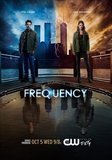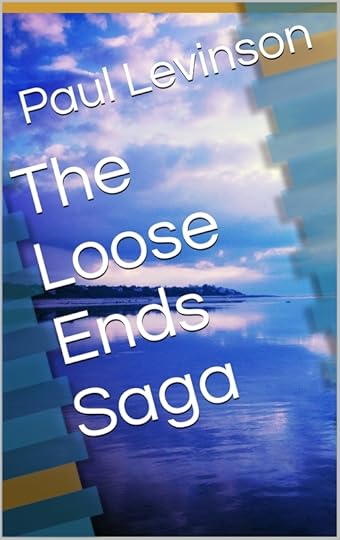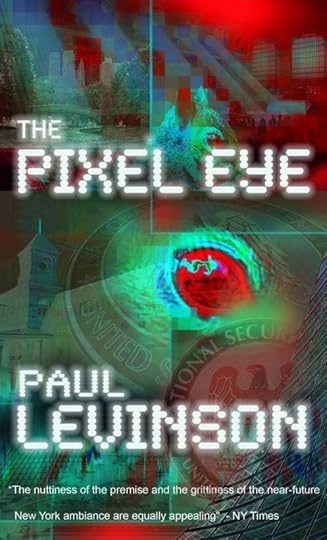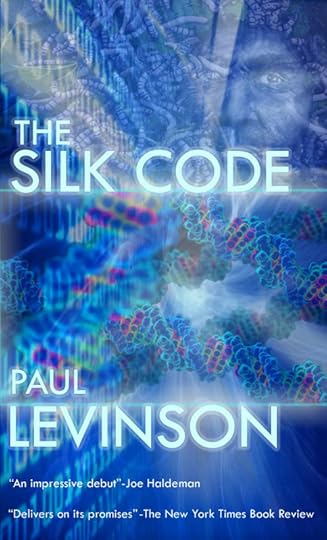Paul Levinson's Blog: Levinson at Large, page 242
October 9, 2016
Trump Does Better in Second Debate than in First, But Hillary Was More Presidential
Donald Trump did better in his second debate with Hillary Clinton than his first - a very low bar - but Clinton commanded the stage with her calm and rationality, and was more Presidential.
And you if look more carefully at the debate, it turns out Trump lied repeatedly - again. He indeed voiced support for our Iraq War at the time, but repeated tonight that he did not. He made the wild claim that our slain ambassador in Libya appealed for help "600 times" before he died. Trump and the truth continue to have the most fleeting of relationships.
And he was over the top lots of times, as when he said, incredibly, that he would put Hillary in jail if he were President - a statement that has been aptly decried by many as "banana republic" (no offense to the clothing chain).
Trump showed some style only once, at the end, when he said, in response to naming one thing he admired about Hillary Clinton, that she was a fighter. She showed class, too, in her answer - that she admired the job he had done with his kids - and throughout her generally positive debate tonight, with fewer attacks on Trump than he rightly deserved.
Also worthy of praise were Anderson Cooper and Martha Raddatz, who easily were the best debate moderators so far, in this very contentious presidential season.
Look, I would've like to have seen Hillary Clinton lacerate Trump on the stage tonight, but I'm more than content to wait for election night in November for that to happen, and Hillary did a good job in making that more likely tonight.
Paul Levinson's books ... Paul Levinson's music
And you if look more carefully at the debate, it turns out Trump lied repeatedly - again. He indeed voiced support for our Iraq War at the time, but repeated tonight that he did not. He made the wild claim that our slain ambassador in Libya appealed for help "600 times" before he died. Trump and the truth continue to have the most fleeting of relationships.
And he was over the top lots of times, as when he said, incredibly, that he would put Hillary in jail if he were President - a statement that has been aptly decried by many as "banana republic" (no offense to the clothing chain).
Trump showed some style only once, at the end, when he said, in response to naming one thing he admired about Hillary Clinton, that she was a fighter. She showed class, too, in her answer - that she admired the job he had done with his kids - and throughout her generally positive debate tonight, with fewer attacks on Trump than he rightly deserved.
Also worthy of praise were Anderson Cooper and Martha Raddatz, who easily were the best debate moderators so far, in this very contentious presidential season.
Look, I would've like to have seen Hillary Clinton lacerate Trump on the stage tonight, but I'm more than content to wait for election night in November for that to happen, and Hillary did a good job in making that more likely tonight.
Paul Levinson's books ... Paul Levinson's music
Published on October 09, 2016 20:57
October 5, 2016
Frequency (TV) 1.1: Closely Spun Gem
 We live in an age in which time-travel is on all kinds of television in all kinds of ways - 11.23.63 from the Stephen King novel on Hulu, 12 Monkeys from the 1995 movie on the Syfy Channel, Outlander from the best-selling book series now a Starz television series, a brand new time travel series Timeless on NBC, and now another TV series, Frequency, made from the 2000 movie, on the CW.
We live in an age in which time-travel is on all kinds of television in all kinds of ways - 11.23.63 from the Stephen King novel on Hulu, 12 Monkeys from the 1995 movie on the Syfy Channel, Outlander from the best-selling book series now a Starz television series, a brand new time travel series Timeless on NBC, and now another TV series, Frequency, made from the 2000 movie, on the CW.Can all of these series be good? Well, you're asking the wrong person. I'm inclined to really like anything with time travel - short story, novel, movie, TV series. Hey, over half the stories and novels I've written are time-travel tales.
Still, I have some standards. Frequency was a gem of a movie. The simplest kind of time travel - information, in the form of a ham radio connection, bridging the past and the future, or the future and the past, depending on which way you looked at it, set in a gritty NYC cop story, and featuring the love between father and son. But nothing is ever even remotely simple when time travel is afoot, and Frequency did a great job of navigating the paradoxes of changing the past and building them - or expertly juggling them - into an memorable story. In fact, the movie is so good that I rank it among the top 10 or even 5 best time-travel movies ever made.
This is what the new television series is up against. And, you know what? I just watched the first episode and think it succeeds admirably. Like the movie, the TV series is a closely spun gem. A family is a stake - this time a father and daughter - not the world, and their struggle to change the past to avoid personal calamity without triggering new calamity promises to be ever bit as riveting and tender and just plain appealing as the movie.
I'll be here with reviews every week.

Paul Levinson's books ... Paul Levinson's music
Published on October 05, 2016 23:12
October 4, 2016
The Most Traditional of Traditional Media Lead in 2016 Presidential Campaign Reporting
The New York Times publication of Donald Trump's 1995 tax return a few days ago underlines the heroic work that the most traditional of traditional media - the paper press, and its reflection online - has been doing in the U. S. 2016 Presidential campaign.
The actual tax returns were of course dropped off in a reporter's mailbox at the Times, so it didn't take much work to retrieve them. But it took acumen and shoe leather to track down the retired accountant in Florida who prepared the tax returns, and confirm that they were the real thing. Even the excellent New York Daily News tabloid couldn't do that - the returns were left in their mailbox, too, but they lacked the depth and reach of a classic full-throttle newspaper like The New York Times and its reporting team of David Barstow, Susanne Craig, Russ Buettner, and Megan Twohey.
Over at Newsweek, one of the two historical titans (with Time magazine) of news magazines, Kurt Eichenwald has published top-notch investigative reporting on Trump's overseas business entanglements and his dealings with Cuba in violation of the US embargo. These stories were so important that Rachel Maddow at MSNBC previewed each of them on her show the night before their publication in Newsweek, providing a rare occasion in which the traditional paper press not Twitter served as the primary source of a cable news hour.
Meanwhile, David Fahrenthold at the Washington Post has been publishing stories for months that expose the truth of the Trump "charitable" Foundation, and the way it has been used in unethical and illegal ways to suit and further Trump's interests. A course could be offered at any university about investigative reporting based just on Fahrenthold's relentless pursuit of this story.
I've been saying for years now that traditional print media have had their day, and certainly are not now what they once were. Newsweek even paused its print edition for a little over a year, and the readership of The New York Times and the Washington Post has plummeted since their heydays. But after the reporting they've provided in the past months, I'll make no mistake about it: even in their diminished form, traditional print journalism has been providing unique and extraordinary service to our democracy.
Paul Levinson's books ... Paul Levinson's music
The actual tax returns were of course dropped off in a reporter's mailbox at the Times, so it didn't take much work to retrieve them. But it took acumen and shoe leather to track down the retired accountant in Florida who prepared the tax returns, and confirm that they were the real thing. Even the excellent New York Daily News tabloid couldn't do that - the returns were left in their mailbox, too, but they lacked the depth and reach of a classic full-throttle newspaper like The New York Times and its reporting team of David Barstow, Susanne Craig, Russ Buettner, and Megan Twohey.
Over at Newsweek, one of the two historical titans (with Time magazine) of news magazines, Kurt Eichenwald has published top-notch investigative reporting on Trump's overseas business entanglements and his dealings with Cuba in violation of the US embargo. These stories were so important that Rachel Maddow at MSNBC previewed each of them on her show the night before their publication in Newsweek, providing a rare occasion in which the traditional paper press not Twitter served as the primary source of a cable news hour.
Meanwhile, David Fahrenthold at the Washington Post has been publishing stories for months that expose the truth of the Trump "charitable" Foundation, and the way it has been used in unethical and illegal ways to suit and further Trump's interests. A course could be offered at any university about investigative reporting based just on Fahrenthold's relentless pursuit of this story.
I've been saying for years now that traditional print media have had their day, and certainly are not now what they once were. Newsweek even paused its print edition for a little over a year, and the readership of The New York Times and the Washington Post has plummeted since their heydays. But after the reporting they've provided in the past months, I'll make no mistake about it: even in their diminished form, traditional print journalism has been providing unique and extraordinary service to our democracy.
Paul Levinson's books ... Paul Levinson's music
Published on October 04, 2016 10:56
October 3, 2016
Timeless 1.1: Threading the Needle
 Hey, it's not easy to do time-travel, even pretty well, without being trite, too easy, on the one hand, or original and true to the intensity of paradox to the point of incomprehensibility, on the other. If your characters are traveling to the past, do you allow them to change it? If so, with what consequences for the present - what consequences that allow the travelers to go to the past in the first place, to change what their change of history has now already changed? And, if nothing changes, or not much, you better make the story of how this happened still riveting enough to make it worth the viewing or the read.
Hey, it's not easy to do time-travel, even pretty well, without being trite, too easy, on the one hand, or original and true to the intensity of paradox to the point of incomprehensibility, on the other. If your characters are traveling to the past, do you allow them to change it? If so, with what consequences for the present - what consequences that allow the travelers to go to the past in the first place, to change what their change of history has now already changed? And, if nothing changes, or not much, you better make the story of how this happened still riveting enough to make it worth the viewing or the read.Timeless, which debuted on NBC on tonight, threaded this needle pretty well. The only arbitrary aspect of the set-up to make it all work, and keep the characters on track, was the stipulation that you can't travel back into a time in which you're alive, lest you run into yourself and cause all kinds of havoc in the time-space fabric. This is a standard ploy - I've used it in some of my own stories - and I think every story is allowed at least one arbitrary convention, as long as the rest works on the tightrope.
The first episode features our characters trying to do something about the Hindenburg disaster, presumably to stop it from exploding after its transAtlantic journey in New Jersey, in 1937. In a well-spun story that keeps you sufficiently off-kilter, something does stop the explosion - another time-traveler bent on doing far more damage to America in history by blowing up the Hindenburg on its return voyage to Germany, and with it some people to America's upcoming Second World War effort.
The good guys - actually three, an agent, a scientist, and an historian (Lucy, played by Abigail Spencer, who was so good in Rectify) - do manage to save the important people on the return voyage, but not the Hindenburg, which explodes anyway, for other reasons. A nice bow to the resilience of history to change.
There's personal loss as a result of the time travel, especially vexing to our heroes, since, again they can't travel back to a time in their own lifetimes. This rolls an excellent counterpoint to our central stories - stopping this or that major calamity, or maybe making sure it happens - the deeper personal goal of bringing back what was lost, either as a result of the time travel or for other reasons.
So we have the makings of a good series here, and I'm looking forward to more. There are some paradoxes that are not addressed or explained away by standard moves - such as the time travelers having recollections of what they changed (hey, that's a second arbitrary construct) - but it's impossible to do time travel without them, and at least they're mentioned or otherwise indicated in Timeless, rather than ignored.
 Paul Levinson's books ... Paul Levinson's music
Paul Levinson's books ... Paul Levinson's music
Published on October 03, 2016 22:09
October 2, 2016
Four Rudy Giuliani's on Twitter
I saw this earlier today on Meet the Press, and meant to write about it.
Rudy Giuliani is being interviewed by Chuck Todd, who cites a tweet from Giuliani.
Giuliani says that tweet wasn't by me - that there are four accounts impersonating him on Twitter. Todd says ok, drops the question, and moves on to something else.
What's going on?
Well, if you look for Giuliani on Twitter, you'll indeed find four accounts, none of which have the coveted blue check mark, which indicates that the account was verified in some arcane way by Twitter. Donald Trump's account has the check - and that's how we know that @realDonaldTrump is really Donald Trump and @realDoneldTrump is not.
I'm too lazy to paste the four bogus Giuliani accounts here - you can easily find them yourself - but, since indeed none have verifying check marks, I'll buy that none are really Giuliani. But this begs the question of: why doesn't Giuliani get his own, real verified account?
Chuck Todd, as he often does, failed to follow up when Giuliani denounced the tweet as not his. So we're left guessing why Giuliani doesn't have a check mark. Is he on Twitter by some other name? Did Twitter not deign to give Giuliani a check mark? (Hey, it happens - I don't have check mark on my @PaulLev account either.)
But whatever the reason, the result led to a signal moment in television news today, when the flagship Sunday news show of them all - Meet the Press debuted on NBC in 1947 - had to withdraw a question to a guest because it was about a tweet that in fact the guest didn't make, even though there are four accounts on Twitter tweeting under the guest's name.
More evidence for what I've said in McLuhan in an Age of Social Media about Twitter having toppled television as the cutting edge medium for delivery of news, and everyone other than the people on television knowing this.
Paul Levinson's books ... Paul Levinson's music
Rudy Giuliani is being interviewed by Chuck Todd, who cites a tweet from Giuliani.
Giuliani says that tweet wasn't by me - that there are four accounts impersonating him on Twitter. Todd says ok, drops the question, and moves on to something else.
What's going on?
Well, if you look for Giuliani on Twitter, you'll indeed find four accounts, none of which have the coveted blue check mark, which indicates that the account was verified in some arcane way by Twitter. Donald Trump's account has the check - and that's how we know that @realDonaldTrump is really Donald Trump and @realDoneldTrump is not.
I'm too lazy to paste the four bogus Giuliani accounts here - you can easily find them yourself - but, since indeed none have verifying check marks, I'll buy that none are really Giuliani. But this begs the question of: why doesn't Giuliani get his own, real verified account?
Chuck Todd, as he often does, failed to follow up when Giuliani denounced the tweet as not his. So we're left guessing why Giuliani doesn't have a check mark. Is he on Twitter by some other name? Did Twitter not deign to give Giuliani a check mark? (Hey, it happens - I don't have check mark on my @PaulLev account either.)
But whatever the reason, the result led to a signal moment in television news today, when the flagship Sunday news show of them all - Meet the Press debuted on NBC in 1947 - had to withdraw a question to a guest because it was about a tweet that in fact the guest didn't make, even though there are four accounts on Twitter tweeting under the guest's name.
More evidence for what I've said in McLuhan in an Age of Social Media about Twitter having toppled television as the cutting edge medium for delivery of news, and everyone other than the people on television knowing this.
Paul Levinson's books ... Paul Levinson's music
Published on October 02, 2016 22:50
Westworld 1.1: Isaac Asimov and Philip K. Dick Served Up by Jonathan Nolan, Lisa Joy and J. J. Abrams
 If you're talking about AI science fiction - robots or androids programmed to convincingly think and act like humans, or almost like humans, or more than humans - you've got to start with Isaac Asimov and his three laws of robotics: (1) a robot can never harm a human being, or, through inaction, allow injury to befall a human, (2) a robot must follow all orders given to it by a human, except if such orders conflict with the first law, and (3) a robot should always act to preserve its own existence, except when following this third law would conflict with the first two. Thus, a robot ordered by a human to dismantle itself must follow that order, unless the robot knows that the human giving such as order was set to commit suicide, a suicide which the robot not dismantled could prevent. (This is not an exact quotation of Asimov's presentation of the three laws, but my own statement of them, with explanatory example.)
If you're talking about AI science fiction - robots or androids programmed to convincingly think and act like humans, or almost like humans, or more than humans - you've got to start with Isaac Asimov and his three laws of robotics: (1) a robot can never harm a human being, or, through inaction, allow injury to befall a human, (2) a robot must follow all orders given to it by a human, except if such orders conflict with the first law, and (3) a robot should always act to preserve its own existence, except when following this third law would conflict with the first two. Thus, a robot ordered by a human to dismantle itself must follow that order, unless the robot knows that the human giving such as order was set to commit suicide, a suicide which the robot not dismantled could prevent. (This is not an exact quotation of Asimov's presentation of the three laws, but my own statement of them, with explanatory example.)Now, Asimov was a fiction writer, a story teller, and one of the best all-time writers at that. So, the only reason why he formulated the three laws was to provide the foundation of an exciting story in which, for some reason, the laws were broken. A human is found murdered in a locked room, with a robot standing by, with blood on its arm, which indicates that the arm bludgeoned the human. What happened?
Asimov didn't deal that much with the tricky nature of consciousness and sentience, but Philip K. Dick did, in a series of short stories and novels that stretched to the limits our understanding of how we understand sentience, and often put those stories in the brains of androids, as in Blade Runner. Indeed, more movies and television shows have been made from Philip K. Dick's work than any other author, and most of them have been superb and pathbreaking.
So, when I say that Westworld, based on its first episode, is a combination of Asimov and Dick, served up by Jonathan Nolan, Lisa Joy, and J. J. Abrams, that's high praise indeed.
The HBO series goes so far beyond the 1973 movie, which was very enjoyable but much less sophisticated, that the new series could have been titled differently and that would have been fine. The androids in the Westworld and related amusement parks begin to malfunction in the movie, killing the guests, but the emphasis is on the action, rather than the metaphysics of the androids. In the HBO show, this ratio is reversed, and the first episode sets up all kinds of reasons for what may be happening - androids who want to break out of their dream, i.e., programming.
Among the most interesting is the possibility that repeated "builds" or programming sets may be leaking into one another, with the result that the oldest androids might be experiencing an unintended synergistic mixing of programming with unforeseen consequences. And, to be clear, by oldest I don't mean the androids that look oldest, but the androids that are oldest, as in having been created first. In other words, in the series, beauty's only skin deep in all kinds of ways - or maybe it isn't only skin deep in more ways than we can or can't imagine.
I'm not going to review the action all that much in this series. But I'll be here with metaphysic disquisitions whenever I can.

#SFWApro Paul Levinson's books ... Paul Levinson's music
Published on October 02, 2016 22:24
October 1, 2016
Designated Survivor 1.2: Unflinching and Excellent
 A powerful episode 1.2 of Designated Survivor with the past Wednesday, with jolting references to what's going on in our own reality off-screen, and President Kirkman even saying "dammit!" in Jack Bauer voice at one point.
A powerful episode 1.2 of Designated Survivor with the past Wednesday, with jolting references to what's going on in our own reality off-screen, and President Kirkman even saying "dammit!" in Jack Bauer voice at one point.But, look, I'm going to stop making snide references to 24, because, as great as that series was, Designated Survivor is its own show, and so far a very good one, deserving assessment in its own right.
Given the world in which we live, you don't have to look far to find something on our news which mirrors through cracked glass what we're seeing in Designated Survivor. The train crash in Hoboken this week is apparently not the work of terrorism, but the mangled station and train brought forth all the feelings we still carry with us about 9/11.
Kirkman going down to site of the attack in Washington, the ruins of the Capitol building, taking the bullhorn, making like George W. Bush at Ground Zero after September 11, was very well done. The whole backdrop of the destroyed Capitol is one of the most effective, haunting scenes I've ever seen on television. It kicks you in the gut every time you see it.
The attack on innocent Muslims in Michigan, ordered by its Republican governor, also kicks you in the gut, and is obviously but convincing a reference to what could happen in our country if Donald Trump and his ilk get into power. Kudos for Designated Survivor for not flinching away from this issue.
We still don't know who set the bombs, but the likelihood that an un-exploded bomb was deliberately left there to point investigators in the wrong - Islamic - direction continues to percolate, and supports the sense I had in the first episode that the perpetrators are domestic. Designated Survivor is now much-watch television for me, and I'm looking forward to more next Wednesday.
See also Designated Survivor: Jack Bauer Back in the White House

terrorist squirrels and bombs in NYC
#SFWApro
Paul Levinson's books ... Paul Levinson's music
Published on October 01, 2016 10:38
September 29, 2016
Why It's Hoboken Terminal not Hoboken Station
Amidst all the concern about the train crash in Hoboken Terminal today, and relief that only one life was taken, and thoughts for that family and the people and families of those who were injured, the question arose of why the train was said to have crashed into Hoboken Terminal not Hoboken Station.
Well, that's what the Hoboken train structure is called, and the reason is that when it was first constructed a century ago it was a terminus, literally the end of the line, a place were trains completed their runs, and went no further, except to turn around and go back the way they came. In such a Victorian and Edwardian world, it made sense to call these facilities terminals rather than stations, where in contrast to terminals the train stopped but continued its journey in the same direction.
Grand Central Terminal is named terminal for the same historical reasons, even though it is often called Grand Central Station, which itself has become a metaphor for bustling with activity. But train buffs know it should be Grand Central Terminal, and bristle when it's called otherwise. I was once sternly told by an assistant editor that I needed to change Grand Central Station to Grand Central Terminal in one of my novels. I complied and learned.
Of course, neither Grand Central nor Hoboken are true terminals these days, and have not been for years. When you're on the New York City Subway system and your train pulls into Grand Central, you'll pulling into a station not a terminal, and your train doesn't turn around but instead continues on its way. Same for the PATH trains in Hoboken.
But it's still charming and quaint to continue to call these places terminals, and I'm all for it. Yet ... names and physical structures are not the same, and though we can enjoy the old-fashioned name, we want our equipment and to be as new and crisply functional as possible.
As engineers look for the cause of the crash, and our thoughts continue for the full recovery of the survivors, we should also give a thought to improving the infrastructure of the rail system in this country. We deserve better tracks and trains to take in and out of these "terminals".
Paul Levinson's books ... Paul Levinson's music
Well, that's what the Hoboken train structure is called, and the reason is that when it was first constructed a century ago it was a terminus, literally the end of the line, a place were trains completed their runs, and went no further, except to turn around and go back the way they came. In such a Victorian and Edwardian world, it made sense to call these facilities terminals rather than stations, where in contrast to terminals the train stopped but continued its journey in the same direction.
Grand Central Terminal is named terminal for the same historical reasons, even though it is often called Grand Central Station, which itself has become a metaphor for bustling with activity. But train buffs know it should be Grand Central Terminal, and bristle when it's called otherwise. I was once sternly told by an assistant editor that I needed to change Grand Central Station to Grand Central Terminal in one of my novels. I complied and learned.
Of course, neither Grand Central nor Hoboken are true terminals these days, and have not been for years. When you're on the New York City Subway system and your train pulls into Grand Central, you'll pulling into a station not a terminal, and your train doesn't turn around but instead continues on its way. Same for the PATH trains in Hoboken.
But it's still charming and quaint to continue to call these places terminals, and I'm all for it. Yet ... names and physical structures are not the same, and though we can enjoy the old-fashioned name, we want our equipment and to be as new and crisply functional as possible.
As engineers look for the cause of the crash, and our thoughts continue for the full recovery of the survivors, we should also give a thought to improving the infrastructure of the rail system in this country. We deserve better tracks and trains to take in and out of these "terminals".
Paul Levinson's books ... Paul Levinson's music
Published on September 29, 2016 14:20
Masters of Sex 4.3: Hugh Hefner and Sammy Davis, Jr.
 Masters of Sex is back in good form in its 4th season, with an episode - 4.3 - that featured not only Hugh Hefner but Sammy Davis, Jr. in the intro.
Masters of Sex is back in good form in its 4th season, with an episode - 4.3 - that featured not only Hugh Hefner but Sammy Davis, Jr. in the intro.Hugh Hefner and the scenes at his mansion have been the best parts of this new season so far. First, the guy who plays him - John Gleeson Connolly - looks and sounds almost 100% like the Hef we remember. But his role in this Masters of Sex story is great, encouraging Masters and Johnson to be a couple. At this point, the coupling is professional. But Hef and we know that there is much more in store - not to mention what we've seen with our own eyes in previous seasons - and Hugh Hefner is therefore playing the role of the matchmaker, the guardian angel, of what we and history know to be right.
Sammy Davis, Jr. has played no major or even minor role in the overall story so far, but he was a treat to see and hear in Sunday's episode, in an appearance made al the more enjoyable because Sammy was played by The Wire's inimitable Andre Royo.
Meanwhile, the overall rest of the story so far is appealing, and slowly gathering a full head of steam. Mad Men's Rich Sommer (whom I interviewed on my podcast years ago when Mad Men was young) was good to see as a husband with a problem in earlier episodes this season. But the most explosive development so far came from another couple and the wife on Sunday who wanted her husband to be a little more rough in their love-making. He gives every indication that that's just not in him - until he erupts in violence that brings Masters and his assistant running into the room to stop the action.
The assistants threads - Masters and Johnson each have one, as per their agreement - has possibilities, but their being married, secretly at first, now revealed, is a bit contrived. But that's ok, as long as the Masters and Johnson story progresses on its rocky road, which I'm eager to see.
See also Thomas Maier: Masters of Sex and Biography Come to Life ...Masters of Sex 3.1: Galley Slaves ... Masters of Sex 3.2: The Shah, the Baby, and the Book ... Masters of Sex 3.3: The Bookstore ... Masters of Sex 3.7: Going Ape ... Masters of Sex 3.9: Calling Hugh Hefner ... Masters of Sex Season 3 Finale: Cliffhanger
#SFWApro
 Paul Levinson's books ... Paul Levinson's music
Paul Levinson's books ... Paul Levinson's music
Published on September 29, 2016 10:13
September 28, 2016
Marshall McLuhan, Donald Trump, and the Revenge of Cool
I'll be in Toronto a week from Friday - at the Toronto School: Then, Now, Next big conference - giving a talk about Marshall McLuhan, Donald Trump, and the Revenge of Cool.
Here, for those who can't wait, or want a taste of my talk, or won't be able to make it to Toronto at all, is a slightly expanded version of my abstract -
For more about Trump, Clinton, and how McLuhan may have reckoned this campaign, see my McLuhan in an Age of Social Media.
Paul Levinson's books ... Paul Levinson's music
Here, for those who can't wait, or want a taste of my talk, or won't be able to make it to Toronto at all, is a slightly expanded version of my abstract -
It may seem strange to characterize Donald Trump, and his angry, aggressive rhetoric as "cool" in the McLuhanesque sense, but most of his statements, especially those on Twitter where he frequently posts, contain almost no content. You can't say much anyway in just 140 characters, but Trump says whatever comes into his mind, claiming one day that he's "softening" his position on immigration, the next day that he's really "hardening" his position, and the day after that he's softening. Like all cool presentations, this allows his supporters to see whatever they want to see in his tweets and other statements. McLuhan might have said that Trump as a politician is all medium and no content. The dark side of this is that, just as the cool medium of television flipped into maximum participatory violence in the 1960s, so Trump and his ice storms of cool have already begun flipping into violence at his rallies. But cool can taketh as well as giveth not only for society, but the candidate who plies it. Trump's stiffness with the teleprompter, and his egregious lack of preparation for his first debate with Hillary Clinton, are hallmarks of his cool, which may be poised to exert its revenge on Trump.For more about the conference, here's the final program. Come on by if you can. I'll be on a 3:30pm panel on Friday, October 14.
For more about Trump, Clinton, and how McLuhan may have reckoned this campaign, see my McLuhan in an Age of Social Media.
Paul Levinson's books ... Paul Levinson's music
Published on September 28, 2016 19:11
Levinson at Large
At present, I'll be automatically porting over blog posts from my main blog, Paul Levinson's Infinite Regress. These consist of literate (I hope) reviews of mostly television, with some reviews of mov
At present, I'll be automatically porting over blog posts from my main blog, Paul Levinson's Infinite Regress. These consist of literate (I hope) reviews of mostly television, with some reviews of movies, books, music, and discussions of politics and world events mixed in. You'll also find links to my Light On Light Through podcast.
...more
- Paul Levinson's profile
- 342 followers



